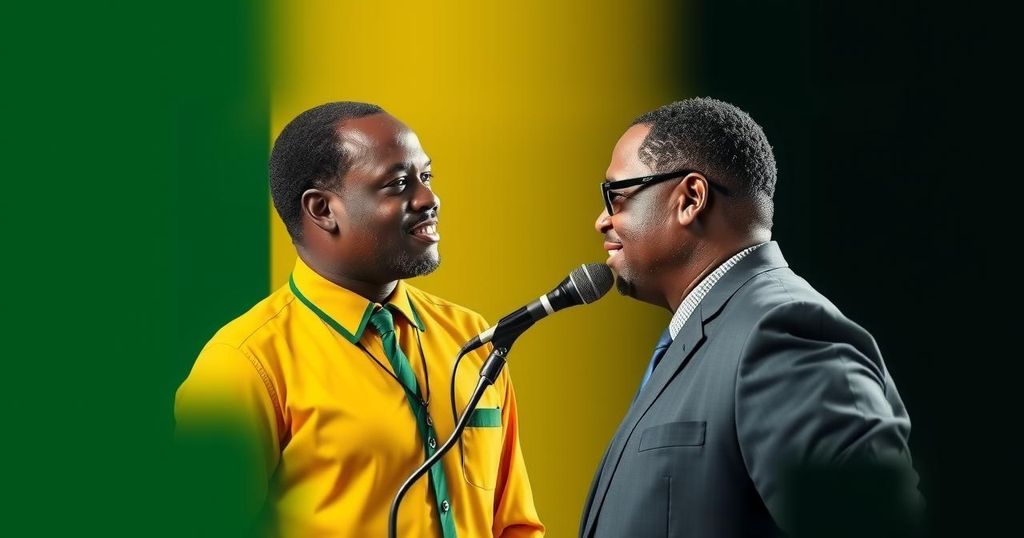Politics
AFRICA, AMIDU CHINNIA ISSAHAKU, BAWUMIA, GHANA, GOVERNANCE, JOHN MAHAMA, JUSTIN FRIMPONG KODUA, MAHAMUDU BAWUMIA, NDC, NEW PATRIOTIC PARTY, NIGERIA, NPP, OPPOSITION, POLITICAL REFORM, POLITICS, PRESIDENTIAL ELECTION, RELIGION, SISSALA EAST, SISSALA EAST MUNICIPALITY
Isaac Bennett
0 Comments
A Call for Change: Supporting a Muslim President in Ghana
Justin Frimpong Kodua, the NPP General Secretary, urges Muslims to support Dr. Bawumia’s presidential bid, advocating for the historical significance of electing Ghana’s first Muslim President. He emphasizes unity among religious groups and the urgency for Muslims to seize this electoral opportunity. Mr. Kodua draws comparisons to Nigeria’s leadership dynamics as a model for Ghana, stressing the need for change in the country’s political representation.
Justin Frimpong Kodua, the General Secretary of the New Patriotic Party (NPP), has called upon Muslims in Ghana to rally behind Dr. Mahamudu Bawumia in his quest to become the first Muslim President of Ghana since independence in 1957. Speaking during a campaign event in Challu, located within the Sissala East Municipality, Mr. Kodua emphasized the importance of unity among Ghanaians, regardless of religious affiliations, suggesting that it is time for a Muslim to hold the presidential office.
Mr. Kodua highlighted that traditionally, Ghana has been governed exclusively by Christians since 1957 and proposed that this election is pivotal for change. He remarked, “This year, the history will be that we Christians feel that it is time for a Muslim to become the President of Ghana because we are all one people.” The unity of Christians and Muslims is underlined by his assertion that a Muslim’s leadership could foster national cohesion.
During his address, Mr. Kodua identified the unique circumstances of the upcoming elections, noting that the leading candidates will result in a Northerner winning the presidency. He stated, “For me, everyone knows where I come from; I am an Ashanti and a Christian,” reaffirming the shared opportunities for leadership across religious divides. He further urged Muslims to support Dr. Bawumia’s candidacy, warning that the current opportunity may not present itself again for another 60 years.
Notably, Mr. Kodua drew comparisons with Nigeria, where leadership balances between Muslims and Christians, suggesting that Ghana could benefit from similar practices. He expressed eagerness for the electoral process to commence, proclaiming that the NPP candidates, Dr. Bawumia in particular, are poised for victory. He reinforced the importance of voting, stating, “A vote for Dr Bawumia would secure a better future for your kids.” He urged all, regardless of political affiliation, to support Dr. Bawumia in achieving this historic milestone for the nation.
The context of this discussion revolves around the need for inclusivity and representation in Ghana’s political landscape, particularly regarding Muslims. Historically, Ghana has witnessed Christian leaders dominate positions of power since its independence. The call for a Muslim president emerges from a desire to further national unity and equitable representation across the country’s diverse religious demographics. As Ghanaians prepare for upcoming elections, calls for a shift in leadership are gaining momentum, reflecting broader demographic trends and aspirations for inclusive governance.
In conclusion, Justin Frimpong Kodua’s appeal to the Ghanaian Muslim community highlights the potential for groundbreaking change in the nation’s leadership with the election of Dr. Mahamudu Bawumia. His emphasis on unity among Christians and Muslims underscores a critical turning point in Ghana’s political narrative. As the elections approach, the decision to support a Muslim candidate could redefine the country’s representation and foster a broader sense of inclusivity and cooperation among its citizens.
Original Source: www.ghanaweb.com




Post Comment